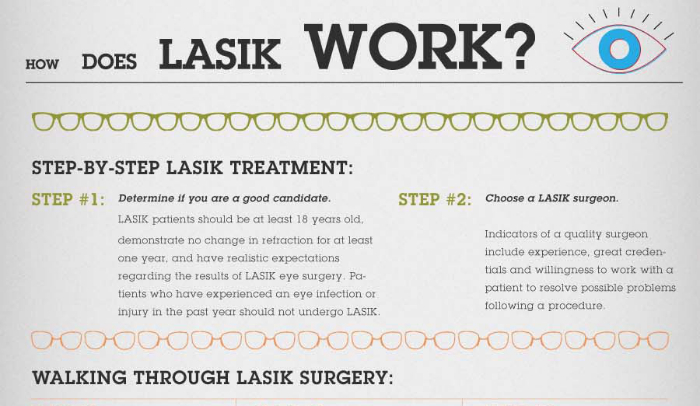Is SMILE Eye Surgery Suitable For You? Vital Aspects And Insights To Take Into Consideration
Is SMILE Eye Surgery Suitable For You? Vital Aspects And Insights To Take Into Consideration
Blog Article
Write-Up Produced By-Diaz Storm
If you're considering SMILE eye surgical treatment, ponder this: are you prepared to accept prospective visual freedom, or does the thought of any risks make you be reluctant? Your decision will hinge on a cautious equilibrium of evaluating the benefits versus the uncertainties. It's critical to delve deeper right into the nuances of SMILE surgical procedure to make an informed choice that aligns with your aesthetic objectives.
Recognizing SMILE Eye Surgery
When considering SMILE Eye Surgical treatment, it's important to understand the treatment and its advantages. SMILE, which stands for Small Laceration Lenticule Removal, is a minimally invasive laser eye surgery that fixes usual vision issues like nearsightedness (nearsightedness).
Throughout the treatment, your eye surgeon will use a femtosecond laser to create a little cut in your cornea. With this incision, a small disc of cells called a lenticule is eliminated, reshaping the cornea and correcting your vision.
One of the vital benefits of SMILE Eye Surgical procedure is its quick recovery time. Lots of patients experience boosted vision within a day or 2 after the procedure, with very little discomfort.
Furthermore, SMILE is understood for its high success rate in offering long-lasting vision improvement. Unlike LASIK, SMILE does not require the development of a flap in the cornea, minimizing the threat of problems and enabling a more secure corneal structure post-surgery.
Recognizing the treatment and its benefits is crucial when considering SMILE Eye Surgery for vision improvement.
Benefits and drawbacks of SMILE
Considering SMILE Eye Surgical procedure for vision improvement features different benefits and possible downsides.
One of the major pros of SMILE is its minimally invasive nature, as it entails a small incision and commonly causes quick healing times. linked website is also recognized for causing very little pain and dry eye symptoms post-surgery contrasted to other vision modification techniques. Additionally, SMILE has been shown to give superb visual results, with many people attaining 20/20 vision or far better.
On the other hand, a possible disadvantage of SMILE is that it may not be suitable for individuals with extreme refractive errors, as the therapy variety is somewhat restricted contrasted to LASIK. One more factor to consider is that the discovering curve for specialists implementing SMILE can influence the schedule of knowledgeable providers in specific areas.
New LASIK to evaluate these benefits and drawbacks meticulously when choosing if SMILE is the best choice for your vision improvement demands.
Determining Qualification for SMILE
To determine if you're eligible for SMILE eye surgical treatment, your ophthalmologist will perform a complete examination of your eye health and vision demands. During this examination, factors such as the stability of your vision prescription, the density of your cornea, and the overall health and wellness of your eyes will certainly be analyzed.
Typically, candidates for SMILE more than 22 years of ages, have a secure vision prescription for at the very least a year, and have healthy corneas without problems like keratoconus.
Your eye doctor will certainly likewise consider your total eye health, any existing eye problems, and your lifestyle requires to identify if SMILE is the best selection for you. It's important to communicate any certain visual requirements or concerns you may have throughout this assessment to guarantee that the therapy straightens with your expectations.
If you aren't eligible for SMILE, your eye doctor may recommend alternate vision adjustment alternatives that far better suit your private requirements and eye health status.
cataract surgery for 75 year old , making a decision whether SMILE eye surgical procedure is right for you calls for careful consideration of your individual eye wellness and visual needs. Seek advice from your optometrist to establish your eligibility for the treatment and evaluate the possible advantages and drawbacks. Remember to communicate any kind of issues or inquiries you might have during the assessment procedure to make an enlightened choice about your vision improvement choices.
